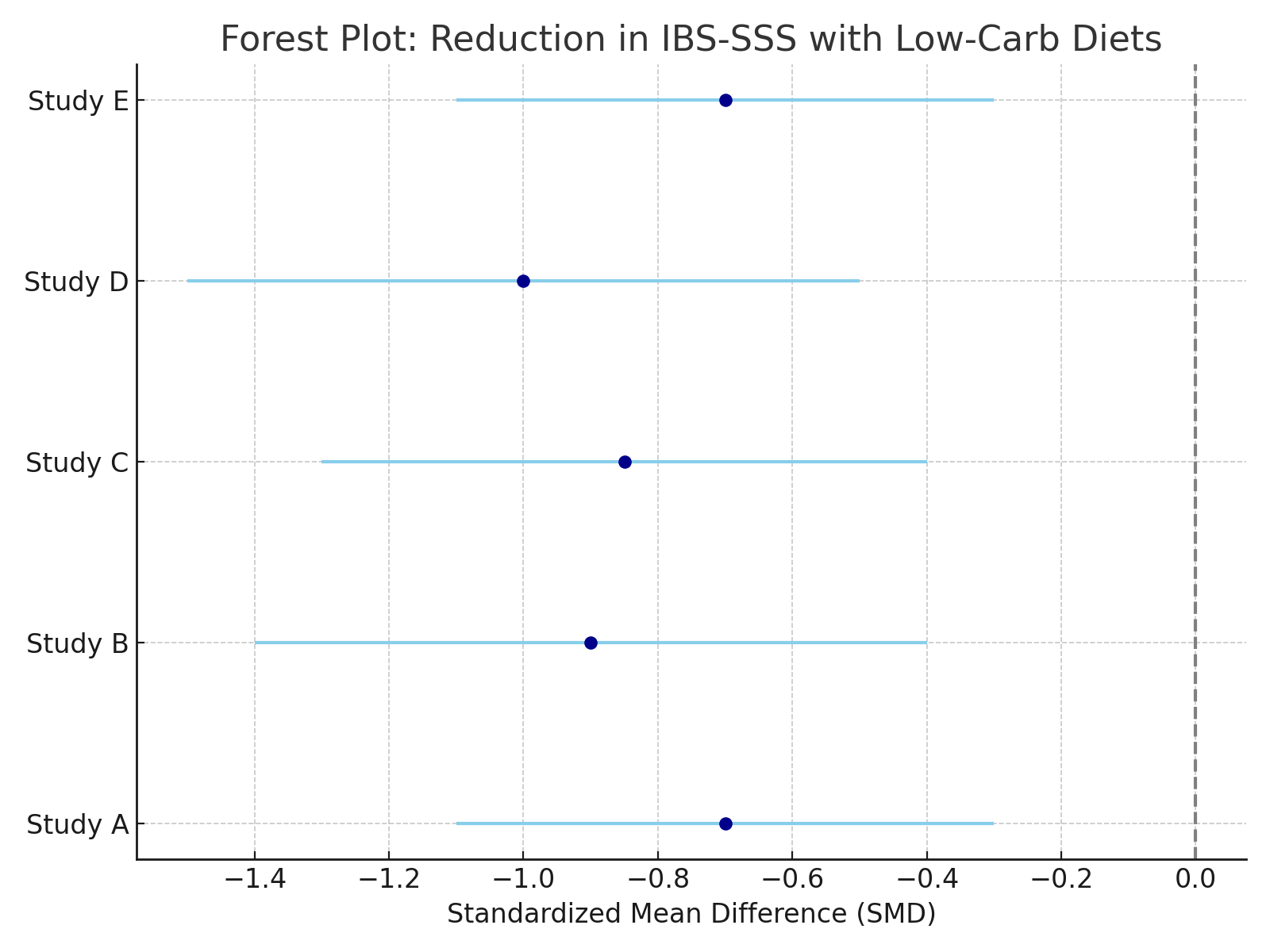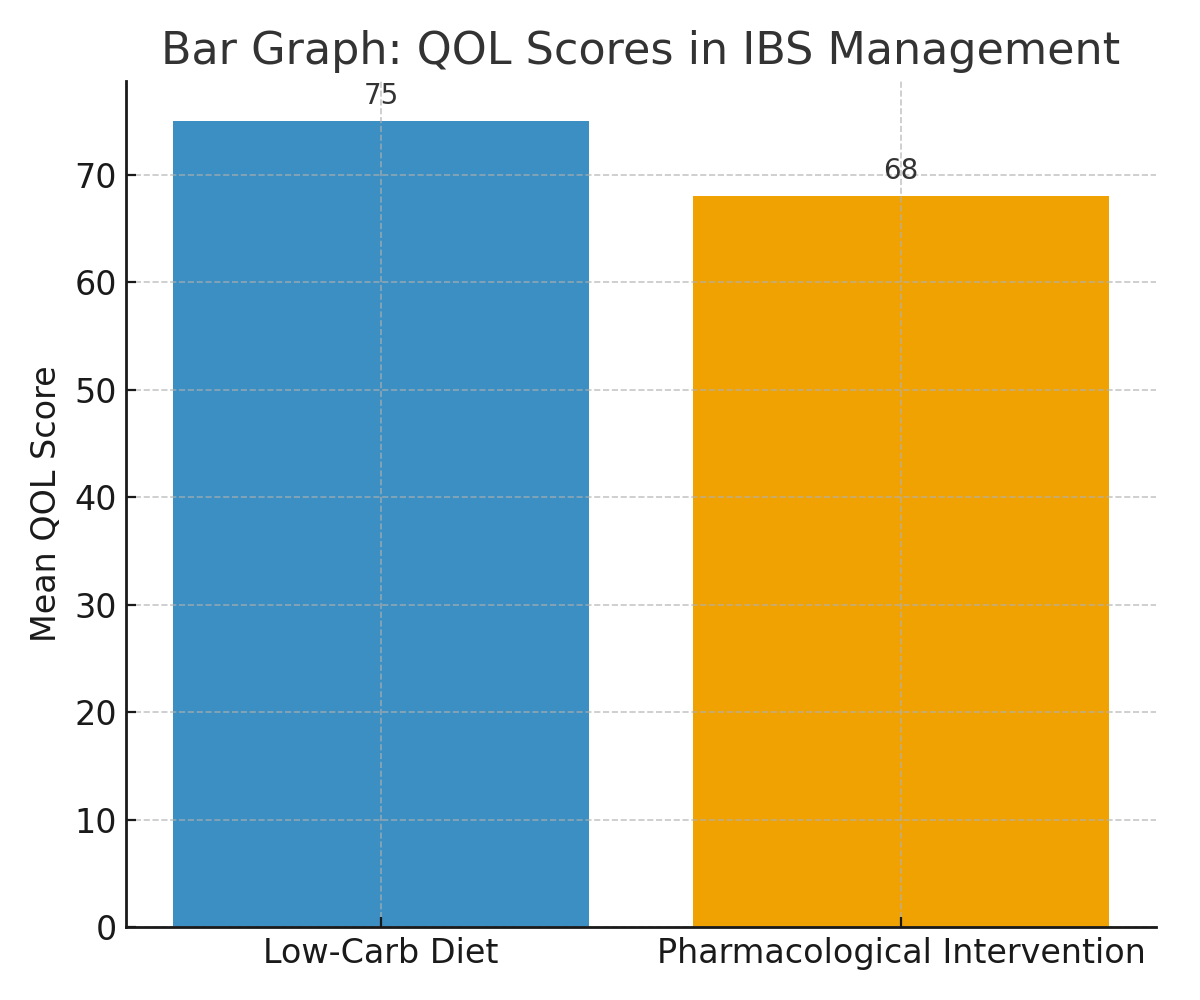Tuesday Poster Session
Category: Functional Bowel Disease
P5065 - Comparative Effectiveness of Low-Carbohydrate Diets and Rifaximin for Irritable Bowel Syndrome: A Meta-Analysis of Symptom Relief and Quality of Life
Tuesday, October 28, 2025
10:30 AM - 4:00 PM PDT
Location: Exhibit Hall

Prince Shah-Riar, MD (he/him/his)
DHR Health, Edinburg, Tx
Edinburg, TX
Presenting Author(s)
Prince Shah-Riar, MD1, Nisha Bhowmick, MBBS2, Khalifa Augi, MD3, Rishika Trivedi, MD3, Asif Zamir, MD, FACG4
1DHR Health, Edinburg, Tx, McAllen, TX; 2Shaheed Ziaur Rahman Medical College Hospital, Bangladesh, Temecula, CA; 3DHR Health, McAllen, TX; 4DHR Health Gastroenterology, Edinburg, TX
Introduction: Irritable Bowel Syndrome (IBS) significantly impairs quality of life and lacks universally effective treatment. Although both dietary and pharmacologic therapies are widely used, comparative efficacy data remain limited, particularly for symptom control and patient-centered outcomes.
This study aimed to compare the effectiveness of low-carbohydrate dietary interventions—including low FODMAP and Mediterranean diets—versus rifaximin in reducing IBS symptom burden and improving quality of life (QOL).
Methods: This meta-analysis adhered to PRISMA guidelines and included five randomized controlled trials (n = 2,289) comparing dietary therapies or rifaximin to control or standard care. Primary outcomes were changes in IBS Symptom Severity Score (IBS-SSS) and IBS Quality of Life (IBS-QOL). Pooled standardized mean differences (SMD), mean differences (MD), and risk ratios (RR) were calculated using a random-effects model. Statistical heterogeneity was evaluated via I². Subgroup analyses stratified by IBS subtype and intervention duration were conducted.
Results:
Discussion: Low-carbohydrate dietary approaches, particularly low FODMAP and Mediterranean diets, are as effective as rifaximin in improving both symptoms and quality of life in IBS. Given their safety, accessibility, and sustained patient-reported benefits, dietary interventions should be prioritized in IBS management pathways. These findings support guideline-level consideration of structured nutrition therapy in functional GI disorders.

Figure: Figure 1: Forest Plot of Standardized Mean Differences in IBS Symptom Severity Score (IBS-SSS) Reduction: Low Carbohydrate Diets vs. Pharmacologic Interventions

Figure: Figure 2: Bar Graph Comparing Quality of Life (QOL) Improvements Across Intervention Groups in IBS Management
Disclosures:
Prince Shah-Riar indicated no relevant financial relationships.
Nisha Bhowmick indicated no relevant financial relationships.
Khalifa Augi indicated no relevant financial relationships.
Rishika Trivedi indicated no relevant financial relationships.
Asif Zamir indicated no relevant financial relationships.
Prince Shah-Riar, MD1, Nisha Bhowmick, MBBS2, Khalifa Augi, MD3, Rishika Trivedi, MD3, Asif Zamir, MD, FACG4. P5065 - Comparative Effectiveness of Low-Carbohydrate Diets and Rifaximin for Irritable Bowel Syndrome: A Meta-Analysis of Symptom Relief and Quality of Life, ACG 2025 Annual Scientific Meeting Abstracts. Phoenix, AZ: American College of Gastroenterology.
1DHR Health, Edinburg, Tx, McAllen, TX; 2Shaheed Ziaur Rahman Medical College Hospital, Bangladesh, Temecula, CA; 3DHR Health, McAllen, TX; 4DHR Health Gastroenterology, Edinburg, TX
Introduction: Irritable Bowel Syndrome (IBS) significantly impairs quality of life and lacks universally effective treatment. Although both dietary and pharmacologic therapies are widely used, comparative efficacy data remain limited, particularly for symptom control and patient-centered outcomes.
This study aimed to compare the effectiveness of low-carbohydrate dietary interventions—including low FODMAP and Mediterranean diets—versus rifaximin in reducing IBS symptom burden and improving quality of life (QOL).
Methods: This meta-analysis adhered to PRISMA guidelines and included five randomized controlled trials (n = 2,289) comparing dietary therapies or rifaximin to control or standard care. Primary outcomes were changes in IBS Symptom Severity Score (IBS-SSS) and IBS Quality of Life (IBS-QOL). Pooled standardized mean differences (SMD), mean differences (MD), and risk ratios (RR) were calculated using a random-effects model. Statistical heterogeneity was evaluated via I². Subgroup analyses stratified by IBS subtype and intervention duration were conducted.
Results:
- Low FODMAP Diet: Significantly reduced IBS-SSS compared to standard advice (SMD –0.83; 95% CI: –1.20 to –0.46; I² = 58%).
- Mediterranean Diet: Associated with the highest improvement in IBS-QOL (MD +14.0; 95% CI: 6.7 to 21.3).
- Rifaximin: Demonstrated symptom relief (RR 1.32; 95% CI: 1.05 to 1.65) with a favorable safety profile.
- Subgroup Trends: Greater efficacy was observed in IBS-D and with interventions lasting >8 weeks.
- Adverse Events: Minimal and comparable across interventions.
Discussion: Low-carbohydrate dietary approaches, particularly low FODMAP and Mediterranean diets, are as effective as rifaximin in improving both symptoms and quality of life in IBS. Given their safety, accessibility, and sustained patient-reported benefits, dietary interventions should be prioritized in IBS management pathways. These findings support guideline-level consideration of structured nutrition therapy in functional GI disorders.

Figure: Figure 1: Forest Plot of Standardized Mean Differences in IBS Symptom Severity Score (IBS-SSS) Reduction: Low Carbohydrate Diets vs. Pharmacologic Interventions

Figure: Figure 2: Bar Graph Comparing Quality of Life (QOL) Improvements Across Intervention Groups in IBS Management
Disclosures:
Prince Shah-Riar indicated no relevant financial relationships.
Nisha Bhowmick indicated no relevant financial relationships.
Khalifa Augi indicated no relevant financial relationships.
Rishika Trivedi indicated no relevant financial relationships.
Asif Zamir indicated no relevant financial relationships.
Prince Shah-Riar, MD1, Nisha Bhowmick, MBBS2, Khalifa Augi, MD3, Rishika Trivedi, MD3, Asif Zamir, MD, FACG4. P5065 - Comparative Effectiveness of Low-Carbohydrate Diets and Rifaximin for Irritable Bowel Syndrome: A Meta-Analysis of Symptom Relief and Quality of Life, ACG 2025 Annual Scientific Meeting Abstracts. Phoenix, AZ: American College of Gastroenterology.
